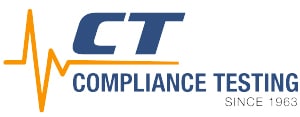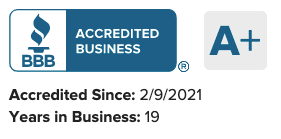If you’re developing an electronic device that uses a module from Digi’s XBee ecosystem, you likely have questions about ensuring your device complies with FCC regulations, such as FCC Part 15.
Digi’s XBee modules provide wireless connectivity using technologies such as ZigBee, cellular networks, Wi-Fi and 802.15.4. As such, devices that use XBee modules emit radio frequencies (RF) and are subject to the FCC’s RF regulations.
Almost all Digi XBee modules are FCC certified, meaning they’ve already passed lab testing to verify that they function within the emissions limits set by the FCC. However, you will likely still need to perform FCC testing for your device to receive equipment authorization.
Below, we’ve discussed everything you need to know about getting your XBee-based electronic device authorized by the FCC, allowing you to market your device in the United States.
We’ve also provided a step-by-step process that you can follow to get FCC authorization, from pre-compliance to lab testing, document submission and more.
For more information about FCC compliance for XBee devices, or to request a free quote from our engineers for testing and achieving FCC equipment authorization for your device, feel free to contact us online or call us at 866-540-5287.
Are Digi XBee Modules FCC Certified?
Currently, all XBee and XBee-PRO RF modules sold by Digi comply with FCC Part 15, the part of the FCC regulations that governs radio frequency devices. These modules are FCC certified, meaning they’ve passed testing and received equipment authorization from the FCC.
Popular Digi XBee modules include:
- Digi XBee 3
- Digi XBee RR
- Digi XBee BLU
- Digi XBee-PRO
- Digi XBee XR 900
- Digi XBee LR RF Module for LoRaWAN
- Digi XBee XR 868
- Digi XBee SX 868
- Digi XBee SX 900
- Digi XBee-PRO 900
In order to maintain FCC certification for OEM use, XBee and XBee-PRO RF modules need to be used with antennas that have been tested and approved for use with the respective module type.
Digi provides a list of approved antennas for fixed base station and mobile applications online, with information about each antenna’s application and minimum separation. You can view this list of antennas here on Digi’s website.
Do Devices That Use XBee Devices Need FCC Testing & Authorization?
In short, yes. Devices that use XBee modules still need to complete testing and receive FCC equipment authorization to go to market in the United States. However, the process is simpler than it would be for a device that does not use a pre-certified module.
Under current FCC regulations, any final product that incorporates a pre-certified module still needs to be tested and achieve equipment authorization. This requirement stems from a need to ensure that the complete device, as it will be sold and used, adheres to all FCC regulations regarding electromagnetic compatibility (EMC).
Although XBee and XBee-PRO RF modules are FCC certified, using them as part of a device that also uses other components may alter the device’s EMC characteristics.
For example, your device’s power supply, its circuit board layout, or the presence of wireless technologies in addition to the XBee module can introduce electromagnetic interference (EMI) that isn’t accounted for as part of the XBee module’s previous FCC certification.
Because of this, the FCC requires that your device is tested to verify that it functions within the limits for radiated emissions, conducted emissions and immunity set under Part 15.
The FCC offers multiple pathways to equipment authorization for electronic devices, including FCC certification and an option referred to as Supplier’s Declaration of Conformity (SDoc).
The SDoC process allows you to prepare a self-issued declaration for your device stating that it’s compliant with FCC Part 15, then receive authorization by backing up this declaration with your device’s lab testing results.
You may be able to receive equipment authorization via the SDoC procedure if your device is designed to function as an unintentional radiator, or if the XBee modular integration does not significantly change its RF characteristics.
Note that even if you seek authorization via the SDoC process, you will still need to complete lab testing to verify that your device operates within the FCC Part 15 RF limits.
The second option, FCC certification, is a more thorough process that’s typically required for intentional radiator devices. Your device may require certification if you’ve modified the XBee module, if it has a complex integration, or if it uses multiple RF technologies.
Our team can help you understand the best FCC authorization process for your XBee-based device. Call us at 866-540-5287 or contact us online and our engineers can walk you through the compliance process, answer your questions and provide a free quote for compliance.
How to Get FCC Equipment Authorization for Your XBee-Based Device
- Determine the appropriate FCC rules. Most devices that use XBee modules will fall under FCC Part 15. If your device is industrial, scientific, and medical (ISM) equipment, it’s likely regulated under Part 18. Our team can help you identify the appropriate FCC regulations that apply to your device and prepare a compliance plan.
- Conduct a pre-compliance evaluation. Before lab testing, you may want to test your device in an informal environment to check its performance. Early testing can help you identify potential EMC issues and fix them before starting the lab testing process.
- Conduct testing with an accredited lab. Your device will need to be tested in a range of configurations to verify that it’s compliant with FCC Part 15. Our ANSI-accredited lab specializes in FCC testing and can complete this step of the process for your device.
- Compile and submit documentation. Following testing, you’ll compile documentation for your device This includes test results, your device’s technical descriptions, manuals, and other information. Our team can assist with this process and prepare your file.
- Label your device and documentation. After your device is authorized, you’ll add the FCC mark and identifying information to your device and packaging. Our guide to FCC labeling provides more information about marking and labeling requirements.
If your device requires FCC certification, you’ll submit your application via a Telecommunication Certification Body (TCB). We offer accredited TCB services, allowing our team to complete this step of the process and receive an FCC ID for your device.
Contact Us for Help With Your XBee-Based Device
As an ANSI-accredited testing lab, we’ve successfully tested and received FCC authorization for thousands of devices, including many devices that use Digi XBee and XBee-Pro modules for RF communications.
Our team can provide a full overview of the testing process for your device and give you a free, no-obligation quote for testing and certification.
To talk to our engineers and compliance specialists, ask a question, or request a free quote for your device, contact us online or call us at 8660-540-5287.



